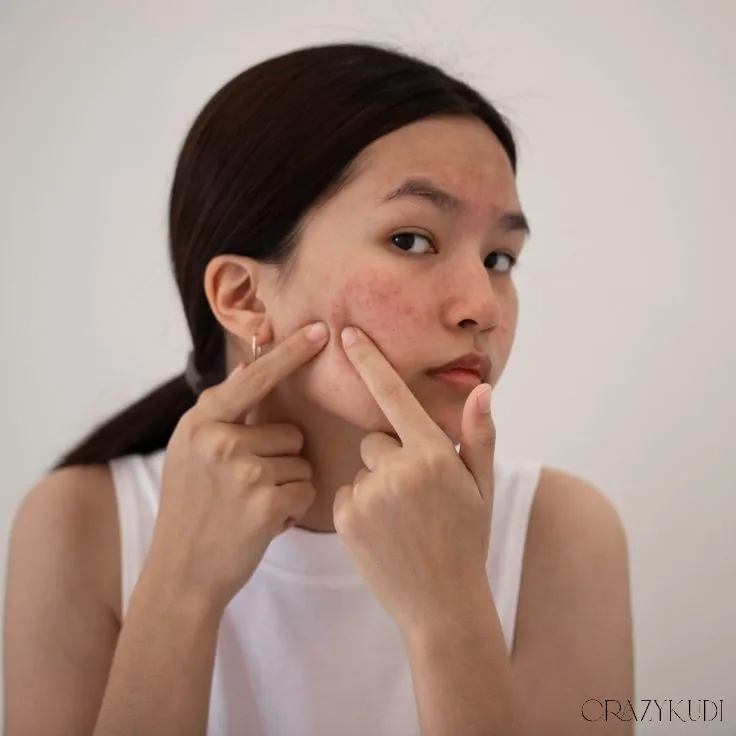Facial skin discoloration is a common concern that affects many people, and it can happen for a variety of reasons. Whether you have uneven skin tone, dark spots, or hyperpigmentation, these skin issues can be frustrating and often make us feel self-conscious. The good news is that skin discoloration can usually be treated and managed with the right skincare routine and treatments. In this blog, we’ll explore the common causes of skin discoloration on the face and share effective solutions to help you restore an even skin tone.
What is Skin Discoloration?
Skin discoloration refers to any change in the natural color of the skin. It can appear as dark spots, patches of uneven skin tone, or a general dullness of the complexion. This condition often occurs when there is an overproduction or underproduction of melanin (the pigment responsible for skin color). Depending on the cause, skin discoloration can take many forms, including hyperpigmentation, melasma, age spots, or sun damage.
While skin discoloration is common and generally not harmful, it can be frustrating. Understanding its causes is the first step in treating and preventing it.
Common Causes of Face Skin Discoloration
1. Sun Exposure and Sun Damage
One of the leading causes of skin discoloration is sun exposure. When the skin is exposed to harmful UV rays, it can trigger an overproduction of melanin, leading to the formation of sunspots or age spots. These dark spots typically appear on areas of the skin that are most often exposed to the sun, such as the face, hands, and shoulders.
- How it causes discoloration: Sun exposure accelerates the formation of melanin, and over time, this can result in uneven pigmentation and the appearance of freckles or sunspots.
2. Hyperpigmentation
Hyperpigmentation is a condition in which certain areas of the skin darken due to excess melanin production. It can occur for various reasons, such as acne, skin inflammation, or even after an injury. The dark spots left behind are often referred to as post-inflammatory hyperpigmentation (PIH).
- How it causes discoloration: After an injury or pimple heals, the skin may become darker due to excessive melanin production, leading to dark spots or uneven skin tone.
Also read: Vitamins That Are Essential for Healthy, Glowing Skin
3. Melasma
Melasma is a type of hyperpigmentation that typically appears as brown or grayish-brown patches on the face, usually on the cheeks, forehead, and upper lip. This condition is most common in women, particularly during pregnancy (sometimes referred to as the "mask of pregnancy") or as a result of taking birth control pills.
- How it causes discoloration: Melasma is often triggered by hormonal changes and worsened by sun exposure, leading to persistent skin discoloration.
4. Aging and Age Spots
As we age, our skin becomes more prone to discoloration due to sun exposure, reduced collagen production, and slower skin cell turnover. Age spots (also known as liver spots) are commonly found on the face, hands, and other sun-exposed areas of the skin.
- How it causes discoloration: With age, the skin’s ability to repair itself slows down, and the prolonged effect of UV exposure results in the formation of age spots and uneven skin tone.
5. Skin Conditions and Acne Scarring
Certain skin conditions, such as eczema, rosacea, or psoriasis, can cause irritation and lead to skin discoloration. Additionally, acne scarring can result in hyperpigmentation, where the skin becomes darker in the areas where pimples once existed.
- How it causes discoloration: Skin conditions that cause inflammation or irritation may trigger the skin to produce excess melanin, resulting in dark spots or uneven patches on the skin.

Effective Solutions for Skin Discoloration
1. Sun Protection
The most important step in preventing and treating skin discoloration is sun protection. Sunscreen with broad-spectrum SPF 30 or higher should be applied daily, even on cloudy days or when indoors near windows. Sunscreen helps to protect the skin from further damage and prevents the worsening of existing discoloration.
- How it helps: Sunscreen prevents UV rays from triggering the production of excess melanin, which can darken skin spots and cause further discoloration.
2. Topical Treatments for Hyperpigmentation
Several ingredients in skincare can help treat hyperpigmentation and promote a more even skin tone. These include:
- Vitamin C: A potent antioxidant that helps reduce the appearance of dark spots and brightens the complexion.
- Niacinamide (Vitamin B3): Known for its ability to reduce hyperpigmentation, niacinamide helps lighten dark spots and even out skin tone.
- Retinoids: These promote cell turnover, which helps fade dark spots and improve overall skin texture.
- Alpha Hydroxy Acids (AHAs): AHAs such as glycolic acid exfoliate the skin’s surface, helping to reduce the appearance of dark spots and reveal fresher, brighter skin.
- How it helps: These ingredients inhibit melanin production, accelerate skin cell turnover, and improve the appearance of dark spots, resulting in a more even skin tone.
3. Professional Treatments
For more stubborn skin discoloration, professional treatments such as chemical peels, microdermabrasion, or laser therapy may be recommended by a dermatologist. These treatments help to exfoliate the skin, remove dead skin cells, and encourage new skin growth, which can reduce the appearance of dark spots and improve skin texture.
- How it helps: Professional treatments can penetrate deeper into the skin and accelerate skin regeneration, leading to smoother, more even-toned skin.
Also read: Hyaluronic Acid for Acne and Acne Scars: How It Helps Heal Your Skin
4. Hydration and Skincare Routine
Proper skincare is essential for promoting healthy skin and preventing discoloration. Using gentle cleansers, hydrating moisturizers, and nourishing serums can help balance the skin and keep it hydrated, which is vital for maintaining an even skin tone.
- How it helps: Proper hydration supports the skin’s repair process, reduces irritation, and can help fade discoloration over time.
Conclusion
Face skin discoloration is a common but treatable concern that many individuals face. Whether caused by sun exposure, hyperpigmentation, melasma, or acne scarring, there are effective solutions available to help restore an even skin tone. By protecting your skin from the sun, using targeted skincare treatments, and maintaining a proper skincare routine, you can significantly reduce the appearance of skin discoloration and achieve a more radiant complexion.
If you’re struggling with persistent skin discoloration, consider consulting with a dermatologist to create a personalized treatment plan tailored to your skin’s needs. With the right care and patience, you can restore your skin’s natural beauty and confidence.

